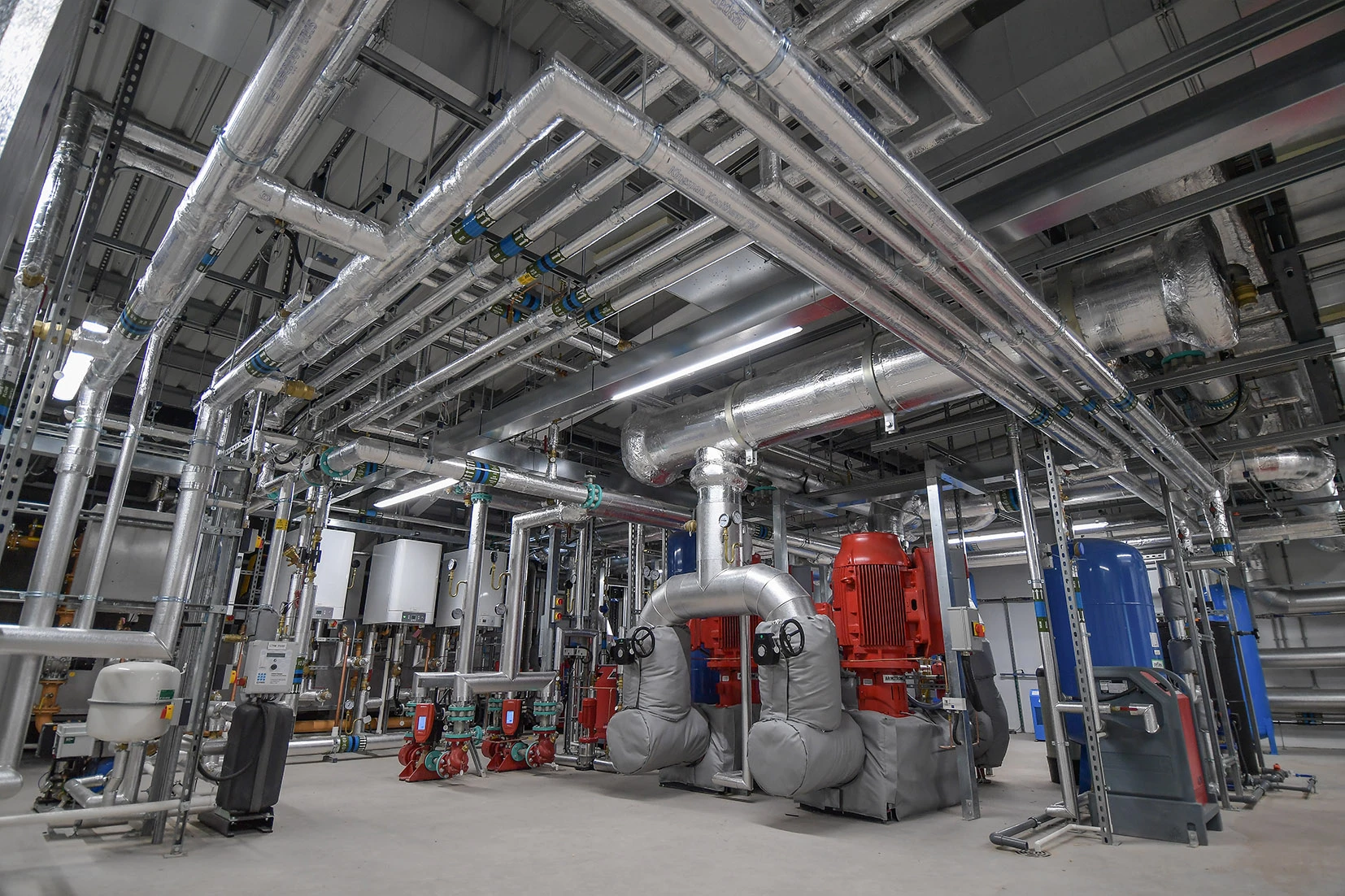
Partner Article
C-ALPS targets hydrogen fuel cell opportunities with £2m new lab investment
Over £2m is being invested into developing a world class hydrogen fuel cell development facility in Coventry University, as the UK looks to lead the globe with electrified propulsion systems.
The Centre for Advanced Low-Carbon Propulsion Systems (C-ALPS), which works with a number of industrial partners, has pressed the button on work that will create a dedicated 100sq metre Hydrogen Fuel Cell lab and comprehensive upgrade of its powertrain cells for running with hydrogen fuel.
The new facilities will be housed inside the £50m research centre that was opened in 2018 and will feature a fully equipped laboratory alongside the upgraded test cells for fuel cell and electrolyser system, stack and cell-level testing and diagnostic/post-mortem work.
There will be areas for instrumenting and commissioning electric drive and fuel cell systems and equipment for environmental testing of powertrain components and systems from -40 to +120
This investment will complement C-ALPS’ bespoke fuel cell test stands, which have been developed in-house and feature advanced electrochemical diagnostics for detailed characterisation of application-scale fuel cells and stacks.
Construction and fit-out will be completed by late August 2021 and will give researchers state-of-the-art facilities to undertake fundamental and collaborative applied research with industry.
“Sustainable electric propulsion and mobile energy storage solutions are essential in decarbonising the transport sector and improving air quality. Hydrogen, as a fuel, will almost certainly play a significant role in this transition,” explained Simon Shepherd, Director of C-ALPS.
“Our latest investments strengthen our existing hydrogen energy research capabilities and give us the facility to support partners in both fuel cell and hydrogen generation R&D and fuel cell application projects.”
He continued: “There is massive interest in this area of electrification and adoption of these technologies is growing extremely fast in Europe and Asia, mainly from stakeholders involved in heavy-duty commercial vehicles, bus and coach, marine, rail transport and aerospace applications.
“Capacity and capability are significantly expanded with these new investments from the University. Researchers, professors and engineering staff will be employed in the new labs and test cells and, as the project portfolio continues to grow, this is expected to create a number of new positions within the team.”
The Centre for Advanced Low-Carbon Propulsion Systems has been working with the transport sector to create cleaner mobility and develop the supply chain so that it can deliver rapidly developing ‘enabling’ technologies around battery systems, fuel cell development, power electronics and electric drive systems.
The facility, which was initially co-funded by international engineering consultancy FEV, focuses on strong industry and academic collaboration to create cutting-edge research, future engineering leaders and powertrain solutions that will drive economic growth and minimise environmental impact.
C-ALPS currently offers access to automotive format battery cell prototype manufacture, battery-cell and module testing and characterisation, system modelling, in-situ sensing and advanced diagnostics and expertise in next generation power electronic devices and sensors.
The centre has already secured a number of major research project wins and is making significant progress towards self-sensing/healing battery cells, development of sensing for electric drive systems, advanced on-board diagnostics for battery, fuel cell and hybrid power systems.
Oliver Curnick, Associate Professor at C-ALPS and technical lead on Hydrogen within the Group, concluded: “What makes us unique within the UK is our mix of component and system level expertise from both academic and industrial backgrounds - all geared towards applied research which enables our industrial partners to meet the challenges facing the transport sectors.
“Understanding both the science behind batteries, fuel cells and electric drives and the engineering which delivers them into a vehicle system, means that commercial partners can approach us with confidence that we can both understand the challenges they face and work with them to create truly innovate solutions.
“The latest investment is a massive step forward and a real show of commitment from Coventry University and our ambition to help the UK lead the world in clean mobility.”
For further information, please visit www.coventry.ac.uk/c-alps
This was posted in Bdaily's Members' News section by Russ Cockburn .








 We must make it easier to hire young people
We must make it easier to hire young people
 Why community-based care is key to NHS' future
Why community-based care is key to NHS' future
 Culture, confidence and creativity in the North East
Culture, confidence and creativity in the North East
 Putting in the groundwork to boost skills
Putting in the groundwork to boost skills
 £100,000 milestone drives forward STEM work
£100,000 milestone drives forward STEM work
 Restoring confidence for the economic road ahead
Restoring confidence for the economic road ahead
 Ready to scale? Buy-and-build offers opportunity
Ready to scale? Buy-and-build offers opportunity
 When will our regional economy grow?
When will our regional economy grow?
 Creating a thriving North East construction sector
Creating a thriving North East construction sector
 Why investors are still backing the North East
Why investors are still backing the North East
 Time to stop risking Britain’s family businesses
Time to stop risking Britain’s family businesses
 A year of growth, collaboration and impact
A year of growth, collaboration and impact